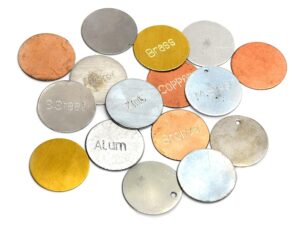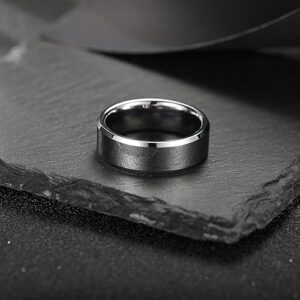If you’ve ever had a rash, redness, or itchiness after wearing jewelry, you’re not alone. A lot of people experience skin reactions—especially when they wear earrings, rings, or chains made with certain metals. That’s where the term “hypoallergenic” comes in.
But here’s the truth: “hypoallergenic” doesn’t mean allergy-proof—it just means the material is less likely to cause an allergic reaction. That’s it.
There’s no strict medical definition or regulation for it. Brands often use the term to describe metals or products that are gentler on the skin—but it doesn’t guarantee you won’t have a reaction.
That’s why it’s so important to understand what type of stainless steel you’re buying—and how your skin responds to it.
Table of Contents
What Does "Hypoallergenic" Really Mean?
Hypoallergenic jewelry means jewelry that is less likely to cause an allergic reaction when worn. Some people have sensitive skin or allergies, especially to metals like nickel, which is often used in cheaper jewelry. Hypoallergenic jewelry is made from materials that are gentle on the skin, such as surgical-grade stainless steel, titanium, niobium, or high-quality gold (like 14k or 18k). These materials are chosen because they don’t usually react with the skin, making them safer and more comfortable for daily wear. While “hypoallergenic” doesn’t mean a person will never react, it does greatly reduce the risk for most people with metal sensitivities.
What Causes Allergic Reactions to Jewelry?
If your skin gets red, itchy, or bumpy after wearing jewelry, you might have a metal allergy. The most common cause is a metal called nickel.
Nickel is used in a lot of jewelry—especially cheaper pieces—because it makes metal stronger and shinier. But for many people, nickel doesn’t mix well with skin. When sweat or moisture touches the metal, tiny amounts of nickel can rub off and irritate your skin.
Some people are also allergic to cobalt or chromium, but nickel is the main cause.
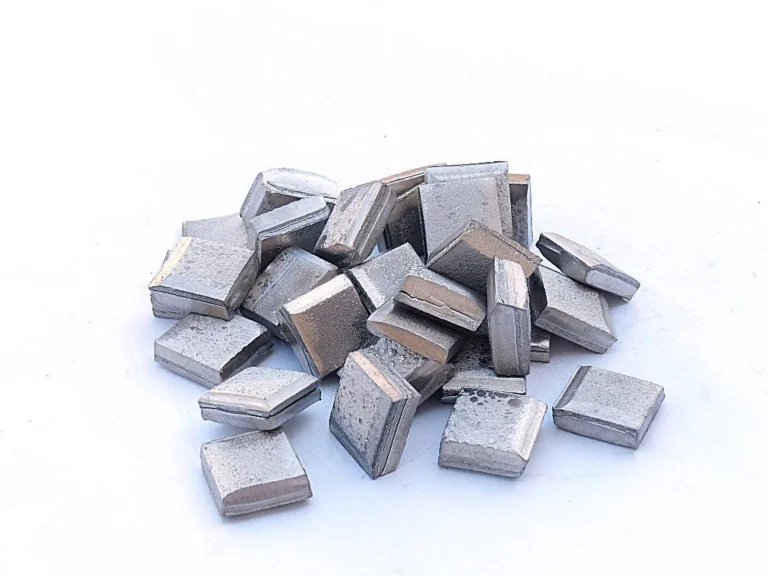
Is Stainless Steel Hypoallergenic?
The short answer is: yes, stainless steel can be hypoallergenic—but it depends on the type you’re wearing.
Not all stainless steel is the same. Some types—like 304 stainless steel—contain higher amounts of nickel. This means they may still cause irritation, especially for people with sensitive skin.
But there’s good news: 316L stainless steel, also called surgical-grade stainless steel, is known for being much more skin-friendly. It has very low nickel content and is often used in medical implants and body piercings because it’s safe for long-term contact with the body.
That’s why 316L and 316LVM are the go-to choices for hypoallergenic stainless steel jewelry. They resist rust, last long, and most importantly—they’re much less likely to trigger allergies.
So, if you’re shopping for jewelry and want something safe, look for pieces labeled “nickel-free”, “316L”, or “hypoallergenic” in the product description. It’s a small detail, but it makes a huge difference for your skin’s comfort—and your confidence while wearing it.
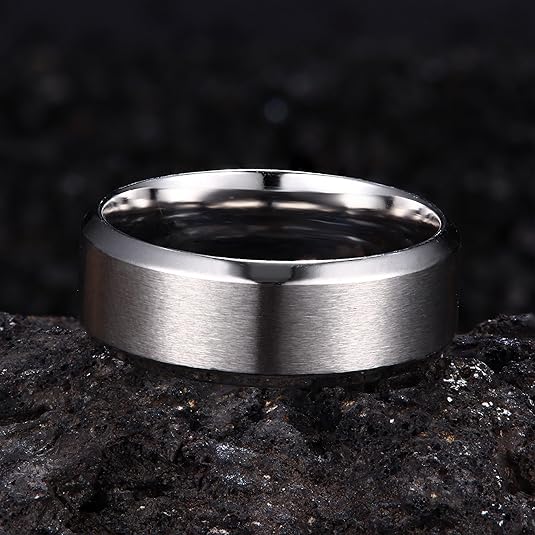
Stainless Steel Grades Compared
Not all stainless steel is the same—some types are great for sensitive skin, while others may still cause irritation. Here’s an easy comparison of the most common stainless steel grades used in jewelry and how they affect your skin.
| Grade | Nickel Content | Rust Resistance | Safe for Sensitive Skin? | Where You’ll Find It |
|---|---|---|---|---|
| 304 | Medium (~8–10%) | Very good | Can cause allergies | Cheap jewelry, kitchen items |
| 316 | High (10–14%) | Excellent | Safer than 304 | Surgical tools, high-quality jewelry |
| 316L | Low release (10–14%) | Excellent | Very safe for most people | Body piercings, hypoallergenic jewelry |
| 316LVM | Purified (vacuum melted) | Excellent (Medical grade) | Extremely safe | Surgical implants, premium body jewelry |
| 430 | Very low (up to 0.75%) | Medium | Usually safe | Budget jewelry, home appliances |
| 440 | Low to medium (~1%) | High but brittle | Not recommended for skin | Knives, tools (rarely used in jewelry) |
Why Does Nickel Matter in Stainless Steel?
Nickel is often added to stainless steel to make it stronger and shinier—but it’s also the main reason people have allergic reactions to jewelry. What really matters isn’t just how much nickel is in the metal—but how much nickel it releases. For example:
- 304 stainless steel has slightly less nickel than 316L, but it releases more of it, which can trigger allergic reactions.
- 316 and 316L stainless steel are designed to lock in the nickel, releasing very little. That’s why they’re much safer for sensitive skin, even though they technically contain more nickel.
So when choosing jewelry, focus on nickel release, not just nickel content. Look for “nickel-free” or “316L surgical-grade” to stay safe.
How to Know If You’re Allergic to Stainless Steel
Wondering why your skin gets red or itchy after wearing jewelry? You might be allergic to the nickel found in some types of stainless steel. Common signs of a stainless steel allergy include:
- Itchy or red skin
- Rash or bumps near the jewelry area
- Dry or flaky patches
- Burning or stinging sensation
These reactions usually appear within a few hours of wearing the jewelry and go away once you remove it. The best way to confirm a metal allergy is to visit a dermatologist. They can perform a patch test to check for nickel sensitivity.
Can Stainless Steel Be Made Safer?
Yes—and that’s exactly what manufacturers do.
To make stainless steel safer for sensitive skin, they use special formulations like 316L or 316LVM stainless steel. These are refined to reduce nickel release, which makes them much more hypoallergenic compared to standard stainless steel.
Some brands go a step further by using coatings or plating (like rhodium or gold) to create a barrier between your skin and the metal. However, these coatings can wear off over time, especially with daily use.
Medical-grade stainless steel—the kind used in body implants and surgical tools—is another example of safer, skin-friendly steel. That’s why it’s popular in body piercings and earrings.
So yes, stainless steel can be made safer—you just need to look for the right grade and quality.
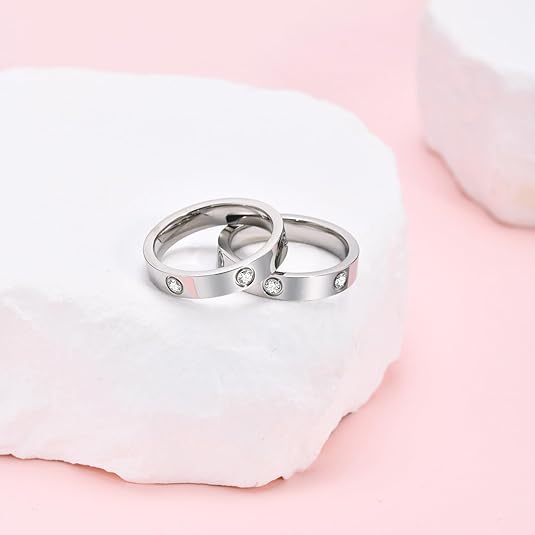
Best Hypoallergenic Alternatives to Stainless Steel
If stainless steel—even the good kind—still irritates your skin, don’t worry. There are several excellent hypoallergenic alternatives that are both safe and stylish.
| Metal | Hypoallergenic? | What Makes It Special | Best For |
|---|---|---|---|
| Titanium | Yes | No nickel, very light, very strong, used in medical tools | Everyday use, piercings, sensitive skin |
| Niobium | Yes | Natural metal, won’t rust, can come in fun colors | Earrings, nose studs, kids' jewelry |
| Platinum | Yes | Pure, fancy, very strong, never changes color | Wedding rings, expensive or fancy jewelry |
| 14k/18k Gold (Nickel-Free) | Yes | Safe if it says nickel-free, 18k has more real gold | Classic styles, people with metal allergies |
| Nickel-Free Sterling Silver | Yes | Mostly silver, just check it says "nickel-free" to be safe | Everyday wear, cute or trendy pieces |
Tips for Buying Safe Stainless Steel Jewelry
Buying stainless steel jewelry? Great choice—if you know what to look for. Here’s how to make sure you’re picking a piece that’s truly safe for sensitive skin.
- Look for “316L” or “Surgical-Grade”: Always check the product label or description. 316L or 316LVM stainless steel is the safest option—it’s used in medical implants for a reason.
- Avoid “Mystery Metal” or Unlabeled Pieces: If the seller doesn’t mention the steel grade, or simply says “stainless steel” without detail—skip it. It could be a cheaper alloy with high nickel content.
- Check for “Nickel-Free”: Even in stainless steel, low traces of nickel can trigger allergies. Look for terms like “nickel-free” or “hypoallergenic” in the listing.
- Buy from Trusted Sellers: Stick with brands that are transparent about materials and known for quality standards. Read reviews from people with sensitive skin if you’re unsure.
- Start Small and Test: If you’re new to stainless steel jewelry, start with a small piece like a stud earring or ring. Wear it for a day or two and see how your skin reacts.
Quick Tip:Avoid stainless steel jewelry labeled with “fashion” or “costume” unless it clearly lists the grade. These often use mixed or coated metals that can cause irritation.
Frequently Asked Question's
Yes, some people can be allergic to stainless steel—especially if it contains nickel. Lower grades like 304 stainless steel may release more nickel and cause irritation. If you have sensitive skin, look for 316L stainless steel, which is much safer and often used in medical tools and body jewelry.
Titanium is one of the most hypoallergenic metals. It’s nickel-free, lightweight, and super strong—making it perfect for sensitive skin. Niobium and platinum are also excellent options.
Yes, surgical-grade stainless steel (316L or 316LVM) is considered safe for ear piercings. It’s often used in professional body jewelry. Avoid cheaper stainless steel, as it may contain more nickel.
Avoid metals that contain nickel, cobalt, or chromium if you have sensitive skin. These are the most common triggers for allergic reactions. Costume or fashion jewelry often contains these metals.
Titanium, niobium, and pure platinum are 100% nickel-free and safe for nearly everyone—even those with strong metal allergies.
The safest materials for earrings are:
- Titanium
- Niobium
- 316L Surgical Stainless Steel
- Platinum
- 14k or 18k Nickel-Free Gold
These are great choices if you want to avoid irritation or allergic reactions.
Final Thoughts: Should You Wear Stainless Steel Jewelry?
If you’re asking, “Is stainless steel hypoallergenic?”—the answer depends on your skin and the metal grade.
316L stainless steel is a great low-risk option for many people with mild sensitivity. It’s strong, sleek, and used in medical settings.
But if you’ve had reactions before, don’t take chances. Consider safer alternatives like titanium, niobium, or platinum, especially for new piercings or long-term wear.
Have you ever had a reaction to stainless steel?
We’d Love to Hear from You! Share your story or tips in the comments—your experience might help someone else avoid discomfort.

